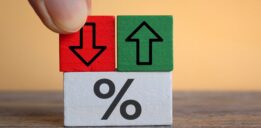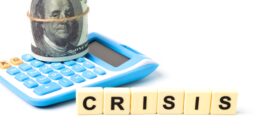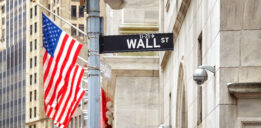Stock Buybacks Under Fire: This Could Be a Catalyst for a Stock Market Crash
The odds of a stock market crash are mounting higher. Major stock buyers are under scrutiny. If they step back a little or outright refuse to participate, massive losses could follow.
Who are these buyers? Companies that trade on the stock market.
You see, over the past few years, companies themselves have been major buyers of their own stocks. This has given a major boost to their stock prices and the overall stock market.
To give you some perspective, consider that in the first quarter of 2018, S&P 500 companies purchased $189.1 billion of their own shares. This was 38% higher than the fourth quarter of 2017, and the highest quarterly amount since the third quarter of 2007. (Source: “S&P 500 Q1 2018 Buybacks Rose 38% to Record $189.1 Billion,” S&P Dow Jones Indices, June 25, 2018.)
There were 61 trading days in the first quarter of 2018. This means that S&P 500 companies spent $3.1 billion a day on buybacks.
Looking at the bigger picture, in the trailing 12 months, S&P 500 companies have spent $575.3 billion on buybacks.
Go back a little further; between 2010 and 2017, S&P 500 companies spent $3.76 trillion on buybacks. That’s bigger than the gross domestic product (GDP) of the United Kingdom. (Source: “S&P 500,” S&P Dow Jones Indices, last accessed June 26, 2018.)
How Did They Manage to Spend All This Money on Buybacks?
It was all in the name of low interest rates and not enough opportunities for corporate America to invest in out there. We were also told that the companies’ executives believed that their stock prices were cheap and that stock buybacks could be the best investment.
In the midst of all this, we were told that share buybacks increase shareholders’ value. Mainstream stock pickers cheered behind them.
Look Out for What the SEC Is Doing
Now, there are new revelations that could put a stop to the buybacks and take major buyers out of the market. And when a major buyer disappears, a stock market crash could follow.
The U.S. Securities and Exchange Commission (SEC) is looking into rules around stock buybacks.
It’s also looking at the intent of the buybacks we have seen in the past.
The SEC Commissioner, Robert J. Jackson Jr., said, “Even more disturbing, there is clear evidence that a substantial number of corporate executives today use buybacks as a chance to cash out the shares of the company they received as executive pay.” (Source: “Stock Buybacks and Corporate Cashouts,” U.S. Securities and Exchange Commission, June 11, 2018.)
Why Does It All Matter?
Dear reader, there are a few things to note here:
- If the SEC is looking at rules around stock buybacks, then companies could be thinking twice before announcing any major buybacks. So, in the coming quarters, companies may not be as active as they have been over the past few years.
- In the midst of the greatest bull market in history, if what the SEC says about buybacks being cashouts for executives is true, then one could say the insiders were selling into strength. It tells us that they were bearish all along. They didn’t want to own stocks at times when markets were surging.
- Overall, investor sentiment seems to be turning and becoming bearish. If companies step back and bearish sentiment prevails, we could have the floor on the stock market fall, and a stock market crash could follow.






